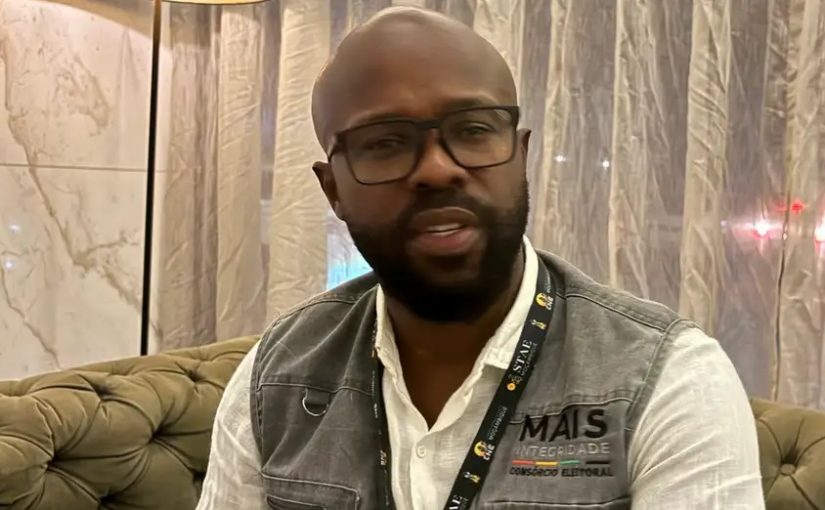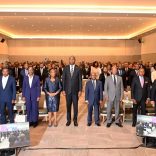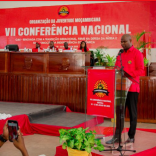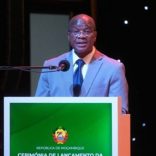Mozambique: Alberto Nkutumula becomes Constitutional Council judge
Mozambique Elections: “We do not condone untruths”

FILE - Edson Cortez, president of the Mais Integridade-Mozambique consortium [File photo: Nádia Issufo]
- Electoral consortium Mais Integridade refuses to share the minutes and notices requested by the Constitutional Council because they are “false” and would misrepresent the truth of the general elections in Mozambique.
The Mais Integridade electoral consortium refuses to share with the Constitutional Council of Mozambique the minutes and notices of the general elections that it has in its possession. Why?
In an interview with DW, the president of the electoral consortium, Edson Cortez, says that he refuses to collaborate because he does not want to condone electoral untruths.
Cortez reiterates that the minutes and notices of the elections were falsified to give an advantage to the party in power, the Mozambique Liberation Front (Frelimo). He also says that the current position of the Constitutional Council is strange, given that, in the previous municipal elections, it validated the electoral results, even though the consortium had presented evidence of irregularities.
DW Africa: Why didn’t the Mais Integridade consortium share the minutes and notices requested by the Constitutional Council?
Edson Cortez (CE): We do not reject it. We simply said that, in the electoral observation process, we found huge disparities between the counting process and the numbers that were placed in the notices, which show that there was fraud. The count numbers we witnessed have nothing to do with the numbers that appear on the posted notices. Given this, we decided that it was not worth sharing these notices with the Constitutional Council, because we would be distorting the electoral truth.
On the other hand, we find the position of the Constitutional Council strange, because, last year, when we collected the notices – and we had more than 90% of the notices from Maputo and Matola – we presented everything to the Constitutional Council in a well-organized manner and the Constitutional Council did not want to analyse the data that Mais Integridade voluntarily offered, giving Frelimo the victory in the municipalities of Maputo and Matola. Today, Maputo and Matola are run by a party that did not win the elections, according to our parallel count.
But, after a year, it is the same Constitutional Council that, in distress, comes to ask us for notices.
DW Africa: By refusing to hand over the notices to the Constitutional Council, will this not compromise electoral truth?
EC: If we collect notices and we are saying that they are false – and that is why we do not publish the parallel count – it would be untrue to take these notices and hand them over to the Constitutional Council. With our country in a bad situation, I cannot take notices that we found to be false and deliver them to an entity whose function is to approve the elections. That’s irresponsible.
DW Africa: Did you present any evidence?
EC: Right after the elections, we were the first group of observers to say that the elections were rigged. It doesn’t make sense that today, 60 days after the elections, the Constitutional Council gives us a limit for delivering false data, this is wishing harm to my country.
This is to give false data and for them to say that they used the data we provided and it was falsified by the National Elections Commission (CNE), which was responsible for ensuring the transparency of the process.
DW Africa: What do you hope the Constitutional Council will bring as results?
EC: We hope that the Constitutional Council decides in the national interest. We’ll see. They are the ones responsible for deciding, ratifying or ordering elections to be repeated, or even ordering a forensic audit.
In the same way that, in the last elections, they decided who had lost the elections, we hope that, this time, they do not commit this irresponsibility, because they would be sending a message to the people saying that it is not worth wasting time when going to vote.
DW Africa: In short, is the Mais Integridade consortium stating that it did not share the minutes and notices because it does not want to condone electoral untruth?
EC: More than 2,000 observers from the Mais Integridade consortium saw that the notices were falsified on the ground, as well as other irregularities that we saw, such as the stuffing of ballot boxes.
The CNE does not have the ability to justify why there are more ballots for the legislative elections than for the presidential elections.













Leave a Reply
Be the First to Comment!
You must be logged in to post a comment.
You must be logged in to post a comment.